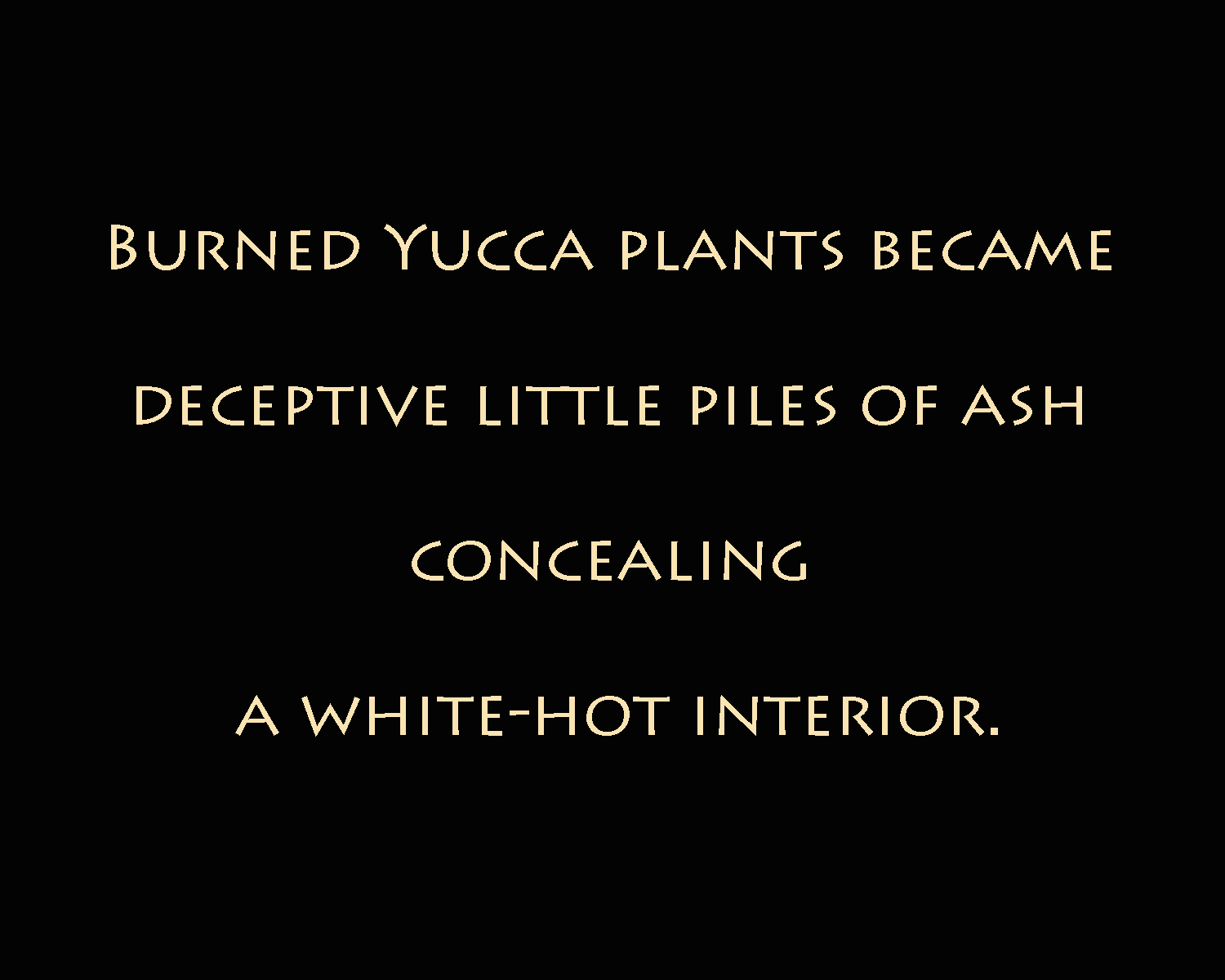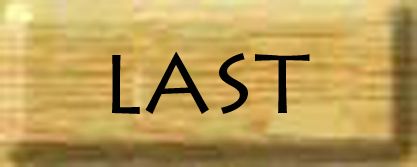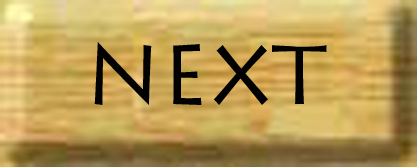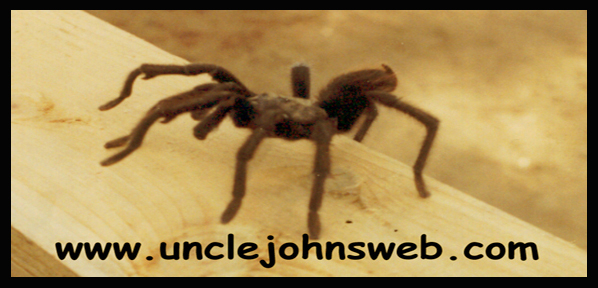
Romero Canyon Wildire
On most of my adventures, there are no concussions, spinal injuries, or bloody white bones.
Southern California was a patchwork oak woodlands, grassy plains and desert that came down to the ocean, before Europeans came and began to manage the water in ever more elaborate ways. The undeveloped ocean-facing slopes of the coastal mountains are covered with the native dense "chaparral", a combination of ceanothus, manzanita, toyon, scrub oaks, poison oak, yucca and various sages. It's quite flammable ordinarily, but extremely so during the frequent statewide droughts. Brush fires can quickly turn into fire storms.
I had just graduated high school in the summer of 1961 when a fire with that horrific kind of potential broke out in Romero Canyon. US Forestry and Cal-fire crews were stretched thin with fires in other parts of the state, and the local Santa Barbara Fire departments were already overextended.
A call went out in the town of Carpinteria for young able-bodied men to volunteer to fight the fire. Get your work clothes on and your toughest boots and show up at the firehouse right now or drive yourself up there. Qualifications: you had to be 18 years old and look to be healthy. I was very healthy but 17, I figured, close enough, and I said older. I got there with about seven others, and soon our group was about a dozen.
We were in good shape, high school football players and surfers, young bucks with little experience in firefighting and nothing to do that day. We were pressed into service. It was a peculiar sort of fun. It was exciting, adrenaline pumping, it was hard, hot work, it was dangerous, it demanded immediate action, it was exhausting...What's not to like?
So somehow, we arrived at the t-shaped intersection with Bella Vista Road, at the top of Romero Canyon Road. The US Forest Service had their command post set up. Trucks and equipment were showing up, everybody was running to do what they were doing, as soon as they learned what their part was. The chains of command had been already all set up and the battle was underway. We wrote our names on a clipboard sign up sheet and were issued gloves and shovels, and directed to join an overstretched team of firefighters who knew what we were supposed to do. Which was to cut fire breaks by hand. A bulldozer arrived to cut the big swath...We all did our part. The bulldozers did the heavy scraping and clearing and could move faster, but we on the ground with shovels could race around the sandstone outcroppings and steep parts that the powerful but cumbersome Caterpillars couldn't navigate.
It was mainly the bulldozers that put the fire out, and the good fortune, the random good fortune that the winds died down that day. Onshore upslope winds could have set all the Santa Ynez Mountains on fire. A down slope wind would have taken it into populated areas. What we on the ground did was to clear a path, so that the fire could not widen, while the dozers found a way plow through and get in front of it.
We were running over terrain that had already burned, toward the fireline amid the smoldering and flickering flames on twisted black branches. Yucca plants had their stalks burnt off but the remaining clumps of burned spines at the base were deceptive little piles of white ash concealing a white-hot interior. The buddy I was running with stumbled and thrust his hand and forearm deep into one of these. Screaming in agony, his whole arm was instantly blistered, as if he had plunged his bare arm into deep fat fryer. He was helped back toward the command post.
We began our furious shovel work, racing to cut a firebreak around the flank of the advancing fire, removing all vegetation in a 20-foot wide swath. Of course, I had seen brush fires from a distance my whole life. It seemed there were fires every summer in the hills and oil fields north of the San Fernando Valley. Up close, it was quite a different thing; a raging violent thing.
As the fire raced forward, the trees and brush turned from green, to brown, to orange, before our eyes as the withering heat made them shrivel, then crinkle, then contort, and then begin to vaporize; then a spark of the advancing blaze arriving on the strong wind, hits the tree, which explodes into a roaring torch..."KA-VOOMSH!"
We worked frantically amid these explosions and the intense heat radiating from the fire the rest of the afternoon and by evening we had gotten it under control, fire commanders came amongst us thanking and congratulating us for our efforts and we were sent back down the hill. At the road, a local restaurant from Carpinteria was providing sandwiches and drinks to everyone involved. We were let go just about dusk.
A couple of weeks later, I got a check in the mail from the U.S. Government. It was a generous day's pay for me at the time, enough to finance a week of surfing down the California Coast to Ensenada.





Copyright © 2022 John Oliver
All Rights Reserved
mail@unclejohnsweb.com

Southern California was a patchwork oak woodlands, grassy plains and desert that came down to the ocean, before Europeans came and began to manage the water in ever more elaborate ways. The undeveloped ocean-facing slopes of the coastal mountains are covered with the native dense "chaparral", a combination of ceanothus, manzanita, toyon, scrub oaks, poison oak, yucca and various sages. It's quite flammable ordinarily, but extremely so during the frequent statewide droughts. Brush fires can quickly turn into fire storms.
I had just graduated high school in the summer of 1961 when a fire with that horrific kind of potential broke out in Romero Canyon. US Forestry and Cal-fire crews were stretched thin with fires in other parts of the state, and the local Santa Barbara Fire departments were already overextended.
A call went out in the town of Carpinteria for young able-bodied men to volunteer to fight the fire. Get your work clothes on and your toughest boots and show up at the firehouse right now or drive yourself up there. Qualifications: you had to be 18 years old and look to be healthy. I was very healthy but 17, I figured, close enough, and I said older. I got there with about seven others, and soon our group was about a dozen.
We were in good shape, high school football players and surfers, young bucks with little experience in firefighting and nothing to do that day. We were pressed into service. It was a peculiar sort of fun. It was exciting, adrenaline pumping, it was hard, hot work, it was dangerous, it demanded immediate action, it was exhausting...What's not to like?
So somehow, we arrived at the t-shaped intersection with Bella Vista Road, at the top of Romero Canyon Road. The US Forest Service had their command post set up. Trucks and equipment were showing up, everybody was running to do what they were doing, as soon as they learned what their part was. The chains of command had been already all set up and the battle was underway. We wrote our names on a clipboard sign up sheet and were issued gloves and shovels, and directed to join an overstretched team of firefighters who knew what we were supposed to do. Which was to cut fire breaks by hand. A bulldozer arrived to cut the big swath...We all did our part. The bulldozers did the heavy scraping and clearing and could move faster, but we on the ground with shovels could race around the sandstone outcroppings and steep parts that the powerful but cumbersome Caterpillars couldn't navigate.
It was mainly the bulldozers that put the fire out, and the good fortune, the random good fortune that the winds died down that day. Onshore upslope winds could have set all the Santa Ynez Mountains on fire. A down slope wind would have taken it into populated areas. What we on the ground did was to clear a path, so that the fire could not widen, while the dozers found a way plow through and get in front of it.
We were running over terrain that had already burned, toward the fireline amid the smoldering and flickering flames on twisted black branches. Yucca plants had their stalks burnt off but the remaining clumps of burned spines at the base were deceptive little piles of white ash concealing a white-hot interior. The buddy I was running with stumbled and thrust his hand and forearm deep into one of these. Screaming in agony, his whole arm was instantly blistered, as if he had plunged his bare arm into deep fat fryer. He was helped back toward the command post.
We began our furious shovel work, racing to cut a firebreak around the flank of the advancing fire, removing all vegetation in a 20-foot wide swath. Of course, I had seen brush fires from a distance my whole life. It seemed there were fires every summer in the hills and oil fields north of the San Fernando Valley. Up close, it was quite a different thing; a raging violent thing.
As the fire raced forward, the trees and brush turned from green, to brown, to orange, before our eyes as the withering heat made them shrivel, then crinkle, then contort, and then begin to vaporize; then a spark of the advancing blaze arriving on the strong wind, hits the tree, which explodes into a roaring torch..."KA-VOOMSH!"
We worked frantically amid these explosions and the intense heat radiating from the fire the rest of the afternoon and by evening we had gotten it under control, fire commanders came amongst us thanking and congratulating us for our efforts and we were sent back down the hill. At the road, a local restaurant from Carpinteria was providing sandwiches and drinks to everyone involved. We were let go just about dusk.
A couple of weeks later, I got a check in the mail from the U.S. Government. It was a generous day's pay for me at the time, enough to finance a week of surfing down the California Coast to Ensenada.





Copyright © 2022 John Oliver
All Rights Reserved
mail@unclejohnsweb.com

All Rights Reserved
mail@unclejohnsweb.com
